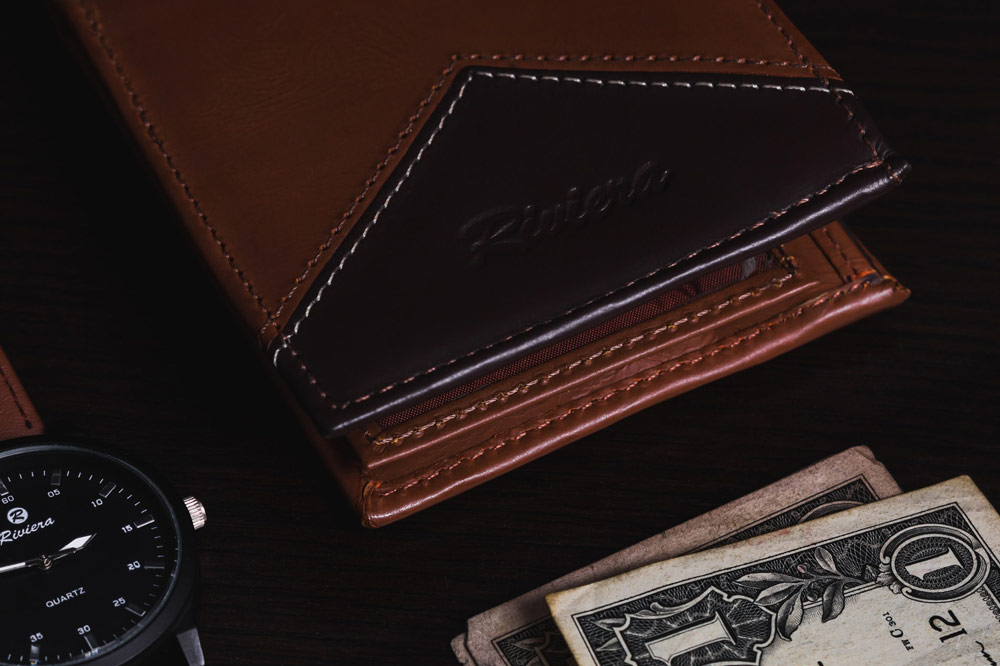There are over a thousand cryptocurrencies available in the market. Accordingly, many crypto wallets allow users to do things such as trade and take part in crypto gambling on the best crypto casino.
On top of that, there are also many types of wallets. Here we help you decide the best bitcoin cash wallet option, giving you information on the different types and how they work.
What Are Bitcoin Cash Wallets?
A bitcoin cash wallet combines two long random strings of numbers and letters. The first is the user’s public address. Other users can use someone’s public address to send cryptocurrency to them.
The next is the private key. Cryptocurrency holders can use their private keys to access their coins and use them to sign off on transactions.
A user’s private key is important because if they misplace it or someone gains access to it, the owner could lose all their crypto assets stored in the wallet. Therefore, users must protect their private keys to prevent losing access to their wallets and theft.
In cases where crypto exchanges automatically create wallets for their users, they usually keep hold of a user’s private key. This means that they also have access to a user’s funds. This might be convenient for some users who want to trade their coins on the exchange quickly, but to others, it is a security risk.
Accordingly, users do not have complete control over their crypto assets, so their funds are at risk when kept on the exchange. An exchange could run into hacking, liquidation, or fraud.
Ultimately, anyone dealing with crypto should create the best bitcoin cash wallet for their private use.
Full Node Vs Simple Payment Verification Wallets
Wallets need to consult the blockchain to verify if the coins involved in a transaction were mined correctly and not yet spent. There are two methods they can employ to do this. They can access an entire copy of the blockchain on a user’s device or only the header of a specific block.
Full Node

A wallet that downloads a full copy of a blockchain is a full-node wallet. It checks all the blocks on the chain to determine whether a transaction is valid. Downloading a full node requires a lot of storage, so it is unsuitable for mobile crypto users. However, it is suitable for miners with a full copy of the blockchain on their mining rigs.
Simple Payment Verification
Each block on a blockchain contains two parts. The first is a long list of transactions, and the second is a summary of a block’s content. This is called the header of the block. It contains a hash of all the transactions in the block.
Accordingly, wallets can use the hash value of a block to determine if a transaction is valid. The header is only a fraction of the size of a full node, so mobile users can easily download the headers without concerning themselves with storage. These are Simple Payment Verification (SPV) wallets.
Full nodes are more secure than SPVs because they can check the entire blockchain and all past transactions. This makes it difficult for malicious users to attempt to reuse spent coins. SPVs are also secure, but they risk missing a fraudulent transaction because it does not analyze all the data on the blockchain.
Furthermore, SPVs cannot accept incoming TCP connections, broadcast transactions, or block peers. And because the blockchain requires cooperation to validate blocks, it might affect the health of the entire blockchain network if there were more SPV nodes than full nodes.
In the end, the best bitcoin cash wallet is a full node for large amounts of bitcoin cash and an SPV for day-to-day mobile crypto transactions.
Different Kinds Of Wallets
Wallets can be either full nodes or SPV, but some are suitable for different platforms or devices. There are hardware, software, and paper wallets. Each has its advantages and disadvantages and unique functions.
Hardware Wallets
The first and most expensive of its kind, hardware wallets, are also more secure than their counterparts. This is a physical device that plugs into a computer to verify transactions. It stores a user’s public address and private keys offline. It is roughly the size of a portable hard drive, so users can generate transactions while moving.
Because hardware wallets store addresses and keys offline, they do not need to access the internet to verify transactions. This makes it virtually hack-proof. Also, many hardware wallets allow users to back up their data and use MFA (Multi-Factor Authentication) to secure their assets further. They also have screens, so users can sign in for transactions on the device.
As we mentioned earlier, hardware wallets are expensive, ranging from $50 to $150. It is the only kind users need to pay for, but it is far more secure and convenient than the alternatives. A hardware wallet is the best bitcoin cash wallet for storing large sums of BTC cash.
Heading up the list are the Ledger Nano devices. The brand has two main devices, the Ledger Nano S, which is the most popular one on the market, and Ledger Nano X, which is more advanced. It supports up to 100 apps storage compared to the Ledger Nano S (up to 18 apps storage). It can also connect to a mobile device via Bluetooth. This means that users can access their assets on a mobile crypto exchange.
Hardware wallets are secure and hack-proof, but they could be too expensive for casual bitcoin cash users. And because they serve a specific purpose, users might not find much stock of these devices.
Paper Storage
Bitcoin cash wallets are a user’s public address and private keys in a data file. A paper wallet is a printout of this data file. Users can scan it with a QR code to complete transactions. This is the safest way to store crypto assets because the data is not on a computer or connected to the internet. It makes paper wallets as secure as their hardware counterparts.

Users can create a paper wallet by saving the private keys in a wallet from a computer. Users print the .dat file containing the private keys and then erase the file from the computer. This is a manual process, but there are other online automated services like BCCAdress and CashAddress. Users only need to choose their cryptocurrency, and the websites generate a new public address and private key.
The best bitcoin cash paper wallets allow users to disconnect from the internet removing the risk of theft completely. For example, Mycelium allows users to plug a USB device straight into their printer, bypassing the need for a computer and adding an extra layer of protection.
The disadvantage of a paper wallet is the lack of backups. Some services like Mycelium use HD wallets with a master seed. Users can use a backup passphrase to access their wallets if they lose their private keys. On the other hand, other services do not have this feature.
To summarise, paper wallets are secure, but backups might be an issue. Also, it is less convenient for daily transactions. Users should use them to store large sums of bitcoin cash.
Software Wallets
Unlike hardware and paper wallets, software wallets are applications on a computer. These are different from those on a crypto exchange because the application stores a user’s private keys offline on the computer or device the application is on. These work on both mobile and desktop.
Users only need to install the software on their devices and follow the instructions to run the wallet client. These wallets support multiple currencies, including bitcoin cash, and allow users to create multiple wallets on the client.
Desktop and Mobile Wallets
Jaxx and Exodus are definitely in the running for the best bitcoin cash wallet. Exodus allows users to control their assets through a desktop and mobile client. It only supports Shapeshift, an online platform for trading crypto, so users have complete control of their assets and have access to hundreds of other cryptocurrencies to trade.
Jaxx has Exodus functionality but is also a block explorer. This tool allows users to search and check transactions and balances across various blockchains.

Desktop wallets are the safest kind of software wallets because they have control of their private keys offline. A disadvantage of a desktop wallet is its lack of mobility, and users must back up their computers often.
Mobile wallets are less secure than their desktop counterparts because they need the internet to run. But, if a mobile one stores private keys on the device, it is more secure. Accordingly, users might run into trouble if they lose their phone and cannot access their private keys.
Web Storage
The least secure of them all is a web wallet. This is because they are usually tied to a crypto exchange. The exchange stores users’ private keys on a server. This means that they have full control over a user’s crypto funds.
The upside is that users can quickly and easily access their funds to trade on the platform. However, the downside is that the hacker will access a user’s funds and steal all their crypto if the exchange is hacked. Also, crypto exchanges are prone to hacks, so storing coins online is risky.
The Best Options On The Market
Crypto wallets differ from devices and platforms. There are various factors to consider when choosing the best bitcoin cash wallet. Are you trading large amounts of crypto? Do you want extra security? Or do you need quick access to your coins? Do you make many daily transactions? These are all questions a user needs to ask themselves when deciding on one to use.
Best Bitcoin Cash Hardware Wallets
As mentioned earlier, the most popular hardware wallets are Ledger Nano and KeepKey. The Ledger Nano has security features like MFA and on-screen transaction signatures, but it is half the size of the KeepKey.
Best Bitcoin Cash Software Wallets
The first is Electron Cash. This is a desktop wallet, a fork of the original Bitcoin wallet. It supports backups using a mnemonic seed phrase. It is an HD wallet. Users can access it via a computer or mobile application.

The second is Coinomi, a mobile wallet with HD backup capabilities. It is available for Android and supports over 1,770 coins. It was one of the first to support SegWit for Bitcoin and other blockchains. In addition to that, it allows users to control transaction fees. Finally, it supports over 175 fiat currencies.
Thirdly, users can consider using a web wallet, CoinPayments. Users do not need to pay a registration fee, and it supports multiple cryptocurrencies, including bitcoin cash.
Furthermore, it uses BitGo, so users can store their private keys offline and vault access for secure long-term investments.
Best Paper Wallets
Paper wallets are numerous on the internet. Many of them provide the same features to their users. These services allow users to print out their private keys or print a QR code for daily transactions.
A few to consider from the paper list are cashadress.org, Mycelium, and Bitcoinpaperwallet.com. Mycelium is more secure because it supports printing private keys straight from a printer using a USB device.
Conclusion
There are hardware, software, and paper bitcoin cash wallets.
Hardware wallets are more secure but come at a cost. Desktop wallets require users to regularly back up their devices but remain secure. Web wallets are the least secure because they need to access the internet.
Additionally, paper wallets are the most secure but less convenient for daily trading and transactions.
The best bitcoin cash wallet depends on a user’s security preferences and transaction frequency.










